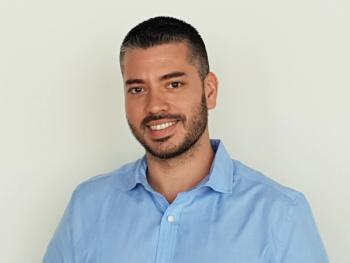
Alleviating documentation burden for physicians
How digital voice assistants can make a difference for your practice.
Physician burnout is at epic levels, and one of the biggest contributors is the burden ofcompleting EHR documentation, which physicians work on during clinic, after hours, and in their homes.
Now, an
During a recently completed AAFP innovation lab, family physicians and other primary care clinicians who used a voice-enabled AI assistant experienced a 72% reduction in median documentation time per note. For physicians, this calculates to an average of 3.3 hours per week saved in documentation time. It also improved satisfaction with their workload and in their practice.
Giving Physicians Greater Control Over Their Time
Today, 55% of physicians and clinicians say they
For primary care physicians, a new class of solutions—AI assistants—holds strong potential to increase capacity and capability while reducing physicians’ administrative and cognitive burden. The challenge: determining which solutions most effectively address primary care physicians’ pain points while strengthening patient engagement and care.
In 2019, the AAFP embarked on a journey to evaluate AI assistants to assess their value in meeting the unique needs of primary care physicians.
The family medicine experience is based on a deeply personal physician-patient interaction that requires support from technology. Yet many technologies used in practice today have eroded the physician and patient experience rather than enhancing it. There is also a need for electronic tools that work for physicians rather than against them, even in an increasingly digital world.
The AAFP created an innovation lab to identify innovative tools that decrease the administrative burdens that stifle joy in work for primary care physicians. The lab offers AAFP members and their practices opportunities to assess existing and emerging innovations and share feedback and recommendations for implementation in family medicine practices.
To date, two AI assistant solutions are in different stages of testing with AAFP members, with one AI assistant class already designated as an “essential innovation” by the AAFP:
- AI Assistant for Documentation—The Innovation Lab has identified an AI assistant for documentation as an essential innovation for primary care physicians with documentation burden. The lab studied the voice-enabled AI assistant referenced above, and results showed that the tool decreased time spent charting by 72%. The tool also reduced after-hours charting by 70%.
- AI Assistant for Clinical Review—In the second lab, the AAFP tested a clinical workflow tool that integrates with a practice’s EHR to mine patient’s data in real time to optimize diagnosis and coding processes. It works by creating a problem-oriented patient summary of the data in the EHR. This dramatically reduces the physician burden to hunt through the EHR to find the data they need to care for a patient. In the AAFP;s first lab with 10 physicians and clinicians,the AAFP saw a 70% reduction in the time to prepare for a visit and a 23% increase in documented diagnosis, as well as increases in risk-adjustment factor (RAF) scoring. Today, the AAFP is planning to expand the lab to 100 physicians given the strength of the initial results.
Meanwhile, the AAFP is evaluating additional AI assistants in the market.
Making the Right Investments
How can physician practices most effectively harness voice-enabled AI assistants to slash documentation time for physicians and decrease the administrative burdens that contribute to burnout? The AAFP’s experience points to three lessons learned.
- Consider the non-financial return on investment. Among family practice physicians, the time savings resulting from adoption of digital tools has proved to be a high indicator of value, driving higher rates of adoption and broad use of these tools within practices.
- Partner with innovators in conducting real-world analyses. The AAFP collaborates with technology companies in testing innovations so it can inform how the solutions are developed and refined. Some of the features built into an AI assistant solution, for example, resulted from feedback from AAFP lab participants. By being an active partner in innovation, the AAFP helps shape the evolution of products to meet constituents' needs more effectively.
- Provide a forum for sharing feedback with other practices. For example, at the AAFP, about a dozen family physicians test new technologies for one month and then share their findings with the larger group. When the results suggest value would be gained from studying application of the technology on a broader scale, the AAFP schedules an expanded lab where the technology can be tested by a larger field of physicians at no cost. From there, the AAFP offers a forum for physicians to share feedback during the pilot and afterward.
By assessing whether AI assistants are not just effective, but also adoptable, organizations can more effectively leverage these tools to enhance both the physician and patient experience.
Newsletter
Optimize your practice with the Physicians Practice newsletter, offering management pearls, leadership tips, and business strategies tailored for practice administrators and physicians of any specialty.






